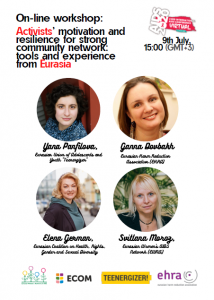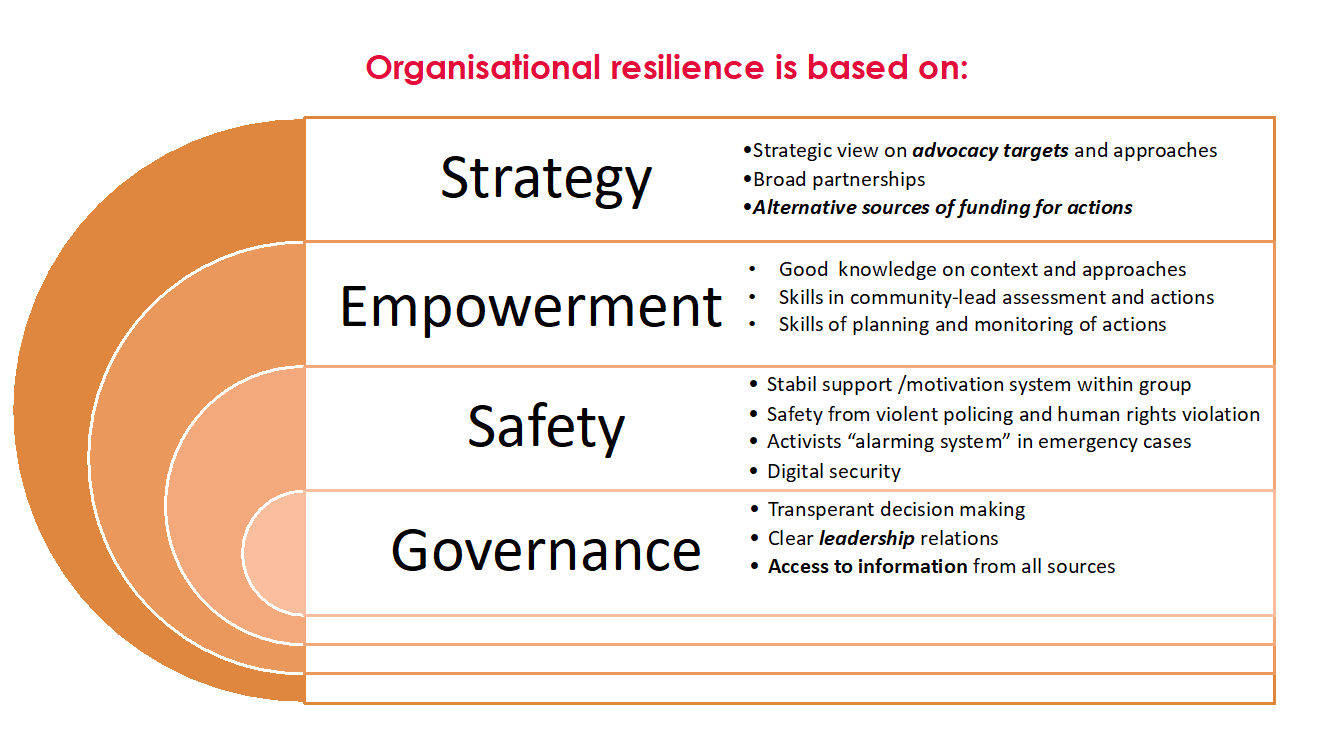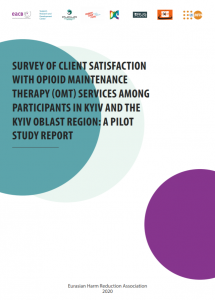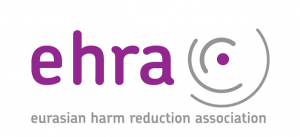

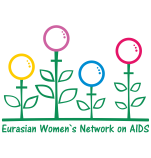
![]()
Presented compendium of the tools and guidelines developed recently by regional community and civil society networks such as EHRA, ECOM, EWNA and Teenergizer to help to organizations and activists from Eastern Europe and Central Asia to cope with challenges in activists’ motivation and to build organizational resilience and supportive organizational systems. The Toolbox was developed as supportive materials to joint workshop during the AIDS2020 Virtual. All tools and guidelines presented here are available in Russian, but some of them are also translated into English, which will be marked in the toolbox.
AIDS2020 Virtual: Activists’ motivation and resilience for strong community network: tools and experience from Eurasia
Join our discussion 9th of July 2020 at 15.00 -16.30 Kyiv/Vilnius time. It is 5 am in PDT on the Workshop Channel in main conference program for registered conference participants.
Facilitator: Ganna Dovbakh, Eurasian Harm Reduction Association (EHRA)
Co-presenters:
Yana Panfilova, Eurasian Union of Adolescents and Youth “Teenergizer”,
Svitlana Moroz, Eurasian Women’s AIDS Network (EWNA),
Elena German, Eurasian Coalition on Health, Rights, Gender and Sexual Diversity (ECOM).
The aim of the workshop is to build understanding and share with participants tools and approaches developed and used to in strengthen resilience and motivation national and regional civil society and community leaders.
Individual challenges in activists’ motivation and resilience such as stress caused by criminalization, discrimination and stigma, lack of family and local community support and enormous pressure from authorities could be addressed through supportive organizational systems. There are good tools to straighten transparent and participatory mechanisms of governance, ensuring leaders’ safety, empowering staff and volunteers for community-led monitoring and actions, developing and implementing joint strategic view for effective advocacy.
The workshop is based on the huge community mobilization experience in Easter Europe and Central Asia region and will be useful for any national and regional community network. The organizational experience of such regional networks as EHRA, ECOM, EWNA and Teenergizer will be used as case studies. The workshop summarizing experience gained by regional networks in cooperation under the Eurasian Regional Consortium supported by Robert Carr Fund for civil society networks (RCF).
Individual challenges in motivation and resilience faced by activists and leaders of key communities all over the world could be one or more from the following:
- Criminalisation, descrimination and stigma.
- Fear to open status, hiding.
- Lack of family and local community
- Lack of mutual support within activists’ group and recognition of effort.
- Unstable motivation for activism.
- Pressure from authorities and friends caused by advocacy.
- Limited understanding of advocacy targets and achievable results.
- Professional burning-out.
Activists themselves do need help in developing resilience and maintain motivation for effective advocacy, which include professional and personal supervision, therapy and coaching, building capacities and specific skills. Some key recommendations on the preventing the burning-out effect could be found in specific training modules[1] and guidances.
Organizations such as local community groups, national or regional networks could become unique supportive environment for activists personal motivation and resilience if they have transparent and participatory mechanisms of governance, ensuring safety, empowering staff and volunteers, developing and implementing joint strategic view. Organizational systems are important antecedents and drivers of the organizational resilience, which we in the civil society movement could be understood as “the ability of an organization to anticipate, prepare for, respond and adapt to incremental change and sudden disruptions in order to survive and prosper.[2]” Organizations need to develop capacities to anticipate, cope and adapt to changes[3] to become resilient to achieve the goals. Main antecedents and drivers for the organizational resilience, according to analysis by S. Duchek are:
- Knowledge base, first of all knowledge about the environment, about former crisis, successful actions[4].
- Resource availability: a broad and accessible set of time, financial and human resources is a foundation for quick and adequate reactions under challenging conditions
- Social resources: deep social capital, shared vision among the organization’s members, shared knowledge, and mutual respect helps to achieve coordinated and successful action in times of crisis
- Power and responsibility: power based on expertise and experience rather than hierarchical position rely on decentralization, self-organization, and shared decision-making[5]. If all organization members feel that they can move something and that they are responsible for the organization’s development, they are more likely open to change. Then they are willing to act as a sensor for change, point to inappropriate behaviors, and find new solutions[6].
Transparent and capable organisational systems from governance – to safety- to empowerment and to joint strategic thinking are the bast background which help to develop organisational resilience for effective advocacy.
For structuring the tools and guidance we are using such simple model to understand organisational processes and systems, please see the picture below. In the toolbox we are going from basic systems – governance to more strategic.
[1]For example, please see http://aph.org.ua/wp-content/uploads/2016/08/Burn-out.pdf
[2]Denyer, D. (2017). Organizational Resilience: A summary of academic evidence, business insights and new thinking. BSI and Cranfield School of Management [https://www.bsigroup.com/LocalFiles/EN-HK/Organisation-Resilience/Organizational-Resilience-Cranfield-Research-Report.pdf]
[3] Duchek, S. Organizational resilience: a capability-based conceptualization. Bus Res 13, 215–246 (2020). [https://doi.org/10.1007/s40685-019-0085-7 https://link.springer.com/article/10.1007/s40685-019-0085-7#citeas]
[4] Gomes, José O., Marcos R. Borges, Gilbert J. Huber, and Paul V.R. Carvalho. 2014. Analysis of the resilience of team performance during a nuclear emergency response exercise. Applied Ergonomics 45: 780–788.
[5] Jaaron, Ayham A.M., and Chris J. Backhouse. 2014. Service organisations resilience through the application of the vanguard method of systems thinking: a case study approach. International Journal of Production Research 52: 2026–2041.
[6] Cheese, Peter. 2016. Managing risk and building resilient organisations in a riskier world. Journal of Organizational Effectiveness: People and Performance 3: 323–331
Volunteers work in LGBTIQ organizations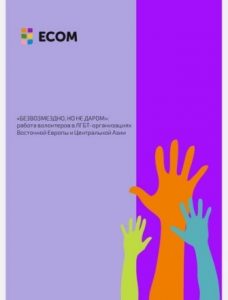 «Free, but not for nothing” is a unique collection describing the experience of organizations operating in our region from
«Free, but not for nothing” is a unique collection describing the experience of organizations operating in our region from
Belarus, Kyrgyzstan, Georgia, Armenia, Macedonia, who talk about their work with volunteers. Each of these examples can inspire you and tell you about the role that volunteers play in the LGBT movement in countries and how important their work is in the prevention and treatment of HIV.
https://ecom.ngo/library/volonteers_work_eeca/ (available only in Russian)
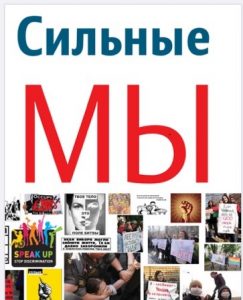 Useful resources by our regional partners:
Useful resources by our regional partners:
Methodical training guidance on mobilising and building the capacity of communities, affected to HIV (available only in Russian)
Guidance on staff and volunteers management in HIV response (available only in Russian)
Good practice guide for employing people who use drugs (available only in Russian)
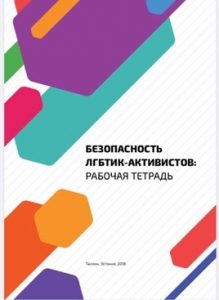 The workbook is intended for LGBTIQ activists involved in advocacy, healthcare, community mobilization, anti-discrimination and stigma and other issues important to LGBTIQ. Each activist, regardless of whether he is a member of an organization, initiative group or “one in the field warrior”, can use this notebook to develop a personal safety plan.
The workbook is intended for LGBTIQ activists involved in advocacy, healthcare, community mobilization, anti-discrimination and stigma and other issues important to LGBTIQ. Each activist, regardless of whether he is a member of an organization, initiative group or “one in the field warrior”, can use this notebook to develop a personal safety plan.
https://ecom.ngo/en/library/safe_activists/ (available only in Russian)
The guide with detailed logistic description gives an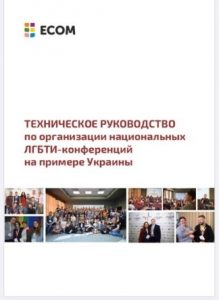 overview of basic safety measures for participants and speakers of LGBT events in the highly violent and stigmatising environment
overview of basic safety measures for participants and speakers of LGBT events in the highly violent and stigmatising environment
https://ecom.ngo/library/conference-tool/ (available only in Russian)
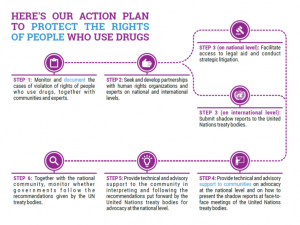 EHRA and Canadian HIV/AIDS legal network Guideline on advocating for the human rights of women who use drugs provides basic information about the methodology for documenting human rights violations against women who use drugs in the format applicable for the United Nations (UN) human rights mechanisms; and practical guidance on how civil society can report human rights violations against women who use drugs to the UN, including the human rights treaty bodies and special procedures such as the Working Group on the issue of discrimination against women in law and in practice.
EHRA and Canadian HIV/AIDS legal network Guideline on advocating for the human rights of women who use drugs provides basic information about the methodology for documenting human rights violations against women who use drugs in the format applicable for the United Nations (UN) human rights mechanisms; and practical guidance on how civil society can report human rights violations against women who use drugs to the UN, including the human rights treaty bodies and special procedures such as the Working Group on the issue of discrimination against women in law and in practice.
More information on the treaty bodies and using it for protection rights and advocacy is here https://old.harmreductioneurasia.org/hr-violations/
Women living with HIV keep their diagnosis a secret, while they want and are ready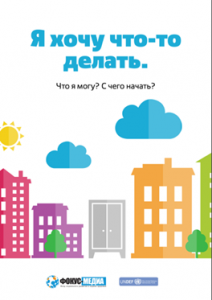 to help, but they don’t understand how to take the first steps without disclosing their status. How to take the first steps? Where to begin? Guidance is based on life experiences of women living with HIV from Belarus, Russia and Ukraine
to help, but they don’t understand how to take the first steps without disclosing their status. How to take the first steps? Where to begin? Guidance is based on life experiences of women living with HIV from Belarus, Russia and Ukraine
http://www.ewna.org/wp-content/uploads/2018/12/ya-chochu-chtoto-delat.pdf (available only in Russian)
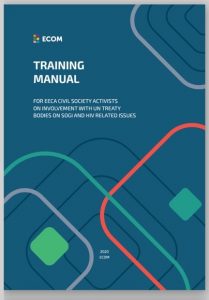 ECOM presents a unique to the region training manual for EECA civil society activists on engagement with UN treaty bodies on the issues of SOGI and HIV.
ECOM presents a unique to the region training manual for EECA civil society activists on engagement with UN treaty bodies on the issues of SOGI and HIV.
The advocacy response to violations of the right to health and other related rights still remains quite ineffective in the EECA region, for both the LGBT community and for people living with HIV.
https://ecom.ngo/en/new-tool-for-engagement-with-un-treaty-bodies-on-sogi-and-hiv/
20 cases of how civil society organizations from Eastern 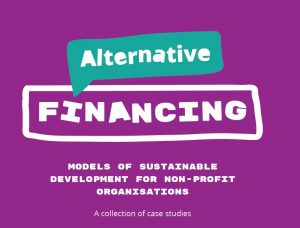 Europe and Central Asia using alternative funding to ensure their sustainability.
Europe and Central Asia using alternative funding to ensure their sustainability.
https://old.harmreductioneurasia.org/wp-content/uploads/2020/01/Alternative_Financing_EN.pdf
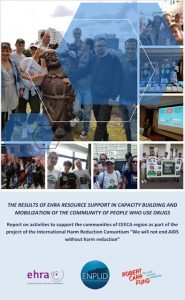 The principle of the wider participation of people who use drugs in shaping policies and advocacy. Thanks to this joint advocacy effort, community projects have a significant impact on people's access to services and the protection of the rights of people who use drugs in the EECA region.
The principle of the wider participation of people who use drugs in shaping policies and advocacy. Thanks to this joint advocacy effort, community projects have a significant impact on people's access to services and the protection of the rights of people who use drugs in the EECA region.
EHRA supports organizations and community initiative groups through a unique system of small grants, accompanied by:
- daily mentoring,
- mutual training and
- the exchange of best practices,
- advocacy support from the regional level,
- establishing working relationships with international partners and decision-makers in the country.
https://old.harmreductioneurasia.org/wp-content/uploads/2020/04/REPORT-2019-SG_ENG_FINAL.pdf
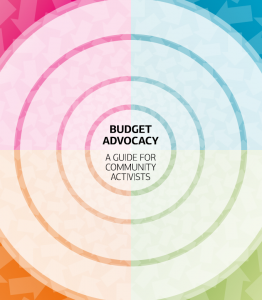 Budget advocacy by communities may have the greatest impact on the actions of authorities, and in its turn, on the lives of people.
Budget advocacy by communities may have the greatest impact on the actions of authorities, and in its turn, on the lives of people.
- Engage PWID community in planning through estimating the unmet needs for harm reduction services and defining priority items for a policy agenda change and financing;
- Allow for direct financing of civil society through social contracting or similar mechanisms, to deliver harm reduction and HIV and TB services to PWID,
- Cost-effectiveness can best be obtained not by cutting services, but through
- Increasing national funding should go hand in hand with reversing harsh prohibition laws and change of enforcement policies that discriminate PWID. Otherwise, scale-up in funding would not convert to increased program coverage.
- The methodology of community-based clients satisfaction survey of opioid maintenance therapy
- Skill-building workshop for community of people using drugs
- Partnership with social science experts
https://old.harmreductioneurasia.org/wp-content/uploads/2020/03/MUSS_ENG.pdf
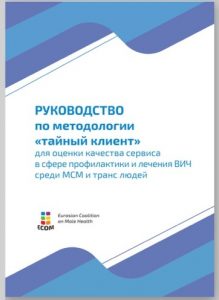 The manual describes a methodology for evaluating medical services, which can be used not only in the work of organizations working with men who have sex with men and trans people, but also among other key groups.
The manual describes a methodology for evaluating medical services, which can be used not only in the work of organizations working with men who have sex with men and trans people, but also among other key groups.
https://ecom.ngo/library/secret_client/ (available only in Russian)
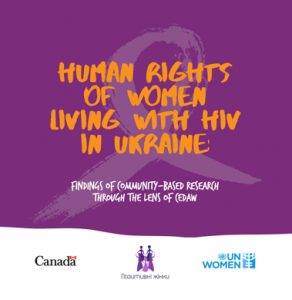 The research approach is based on the understanding that HIV prevention and treatment is not only a public health problem. The research focuses on the factors and the socio-economic context that lead to HIV infection, and the recognition that human rights violations, including gender inequality and gender-based violence, constitute major vulnerabilities to HIV infection. It also outlines major barriers to HIV treatment, sexual and reproductive health and rights and provision of other health services.
The research approach is based on the understanding that HIV prevention and treatment is not only a public health problem. The research focuses on the factors and the socio-economic context that lead to HIV infection, and the recognition that human rights violations, including gender inequality and gender-based violence, constitute major vulnerabilities to HIV infection. It also outlines major barriers to HIV treatment, sexual and reproductive health and rights and provision of other health services.
http://www.ewna.org/wp-content/uploads/2017/12/HIV-through-CEDAW-lens_eng.pdf (available only in Russian)
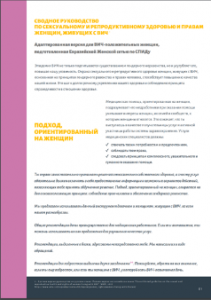 On the International Day of Action for Women’s Health EWNA launched a community-friendly Russian translation of the Consolidated WHO Guideline on sexual and reproductive health and rights of women living with HIV. Developed Tool also designed to help front-line health-care providers, programme managers and public health policy-makers to better address the SRHR of women living with HIV.
On the International Day of Action for Women’s Health EWNA launched a community-friendly Russian translation of the Consolidated WHO Guideline on sexual and reproductive health and rights of women living with HIV. Developed Tool also designed to help front-line health-care providers, programme managers and public health policy-makers to better address the SRHR of women living with HIV.
http://www.ewna.org/wp-content/uploads/2019/05/SRHR_Adapted_Guide.pdf (available only in Russian)
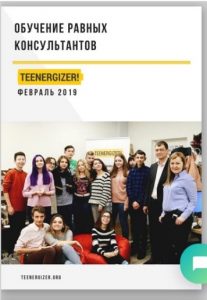 The manual covers the following topics:
The manual covers the following topics:
What an equal consultant should know and be able to
What can be the stages of training peer consultants
What forms and methods are preferable to use when preparing peer consultants
How can I conduct training seminars - trainings at different stages of preparation.
https://teenergizer.org/2019/02/obuchenie-ravnyh-konsultantov/ (available only in Russian)
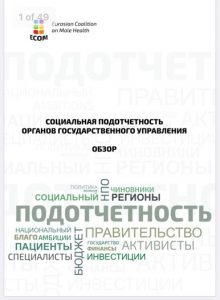 Social accountability of government bodies is the accountability of existing government organizations to citizens and other residents of the country, for the well-being of which these bodies were created. This is a regular and continuous process of coordination and interaction between citizens and government agencies. This process works most effectively in a democracy. Other ways of governing the state, such as autocracy, bureaucracy, dictatorship, for example, and others - do not imply a stable and high degree of transparency and accountability of the work of state structures to the people.
Social accountability of government bodies is the accountability of existing government organizations to citizens and other residents of the country, for the well-being of which these bodies were created. This is a regular and continuous process of coordination and interaction between citizens and government agencies. This process works most effectively in a democracy. Other ways of governing the state, such as autocracy, bureaucracy, dictatorship, for example, and others - do not imply a stable and high degree of transparency and accountability of the work of state structures to the people.
https:/ /ecom.ngo/library/social-accountability/ (available only in Russian)
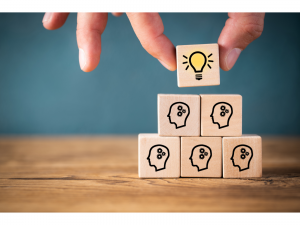 This handbook is intended for leaders and activists who want to build effective cooperation between communities of key populations affected by the HIV epidemic. Cooperation between communities and the experience gained in the region of Eastern Europe and Central Asia is unique, with many good outcomes and many lessons learned. In this short handbook, we tried to analyze the experience of communities and answer the question “what works and what doesn’t why?”.
This handbook is intended for leaders and activists who want to build effective cooperation between communities of key populations affected by the HIV epidemic. Cooperation between communities and the experience gained in the region of Eastern Europe and Central Asia is unique, with many good outcomes and many lessons learned. In this short handbook, we tried to analyze the experience of communities and answer the question “what works and what doesn’t why?”.
We tried to formulate a vision of the results of good cooperation and outline steps on how to organize work so that no one is afraid to share ideas and involve partners. We also explain how to avoid limitations in the exchange of information between communities or unclear conditions for joint work, in order to prevent disappointment from unrealistic tasks, burnout, and mistrust.
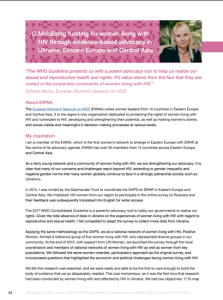 Case study on funding mobilization for women living with HIV through evidence-based advocacy in Ukraine, Eastern Europe and Central Asia.
Case study on funding mobilization for women living with HIV through evidence-based advocacy in Ukraine, Eastern Europe and Central Asia.
The publication is dedicated to all the inspirational women living with HIV in all their diversity – both living and past. These women have paved the way for those who continue to act as bold defenders of sexual and reproductive health and rights.
https://apps.who.int/iris/bitstream/handle/10665/330034/WHO-RHR-17.33-eng.pdf?ua=1 (available only in Russian)
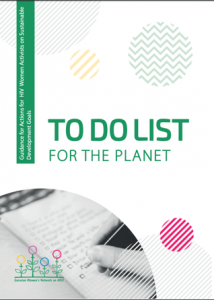 HOW CAN ACTIVISTS PARTICIPATE IN PROCESSES RELATED TO SDGs? Civil society has a vital role to play to ensure the localization, implementation and monitoring of the SDGs to ensure they are
HOW CAN ACTIVISTS PARTICIPATE IN PROCESSES RELATED TO SDGs? Civil society has a vital role to play to ensure the localization, implementation and monitoring of the SDGs to ensure they are
achieved by 2030. The SDGs provide a strategic opportunity to advocate at the global, regional, national and local level for the realization of the rights of women living with HIV.
http://www.ewna.org/wp-content/uploads/2018/10/ToDoList_Booklet_en_printing_-final.pdf (available only in Russian)

